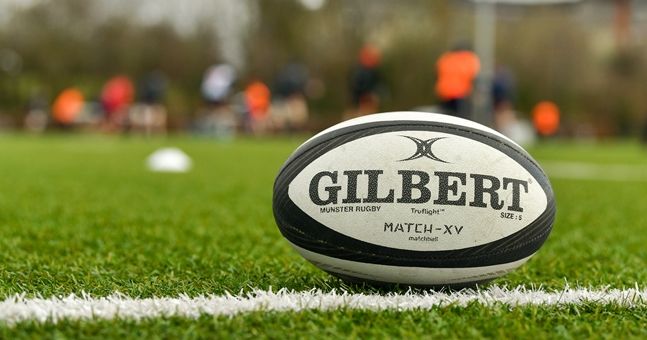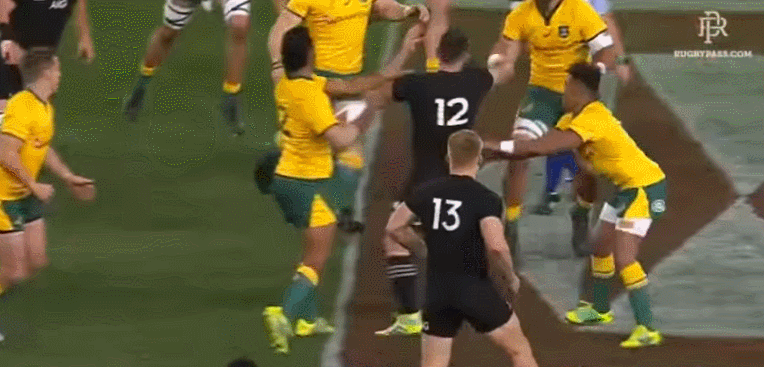

Share
29th September 2018
02:50pm BST

"At the elite level, they are nearly there with regards to recognising and treating concussion. Their eyes and ears are open. "Still, it is good when you hear an uproar. In years gone by, guys would have got a pat on the back if they got up from a heavy blow and played on. They would have been praised for being a macho man. "We're still seeing that today with some former players going on about tackle heights and moans about dodgy calls and red cards. That doesn't help much."
 Peter has three other children, Holly (from his marriage to his ex-wife Karen), Gregor and Isla. "Gregor is a mad keen footballer," says Robinson.
Peter has three other children, Holly (from his marriage to his ex-wife Karen), Gregor and Isla. "Gregor is a mad keen footballer," says Robinson.
"I was out watching him the other day and he was concussed after a clash of heads. Real case of Bambi legs. He is helped to the sideline and the referee comes over soon after and said, 'If he's feeling okay, he can go back on'. "If we hadn't been there to see that - myself and his coach - he could have been sent out again. We were lucky. One of the links in the safety chain worked that day."It all brought back uncomfortable memories of that day in January, seven years ago, when Ben was sent back out to play when he should have been kept well clear of the pitch. "Karen knew," he says. "She knew something was wrong with her boy. But all the experts - all the people who were supposed to be in the know - they told her he would be fine. She placed her faith in others. The whole system failed that day. "When the pathologist mentioned 'Second Impact Syndrome', I had never heard of it before. There was no mention of concussion or severe traumatic brain injury, but that's what it was. "When I entered the hospital that day (in 2011), it was the same thing. There was no talk about concussion. Concussion can be fatal and they are finally telling it like it is." Peter grew up in Lurgan, Antrim and Lurgan Rugby Club was the literal stone's throw away from his house. He played with the club from the age of eight until his late 30s. During that time he had one confirmed concussion and he was hospitalised as a result. Still, as a lifelong rugby player, and fan, he took it as par for the course. "I expected Ben to get broken arms, noses and the like from playing rugby," he admits.
"When I heard he was knocked out, that day, I was not surprised. "What I did not expect was to be told by doctors that the injuries he sustained playing rugby, that day, were what they would normally see in a car accident. I did not expect to hear, 'Your son has a 1% chance of living'."The heartbreak was as raw and woeful as you could ever imagine. One could forgive Peter Robinson if he wanted nothing to do with rugby any more, but he has hung on in there and is determined to get the word out there about concussion to as many people as he can. "In a way," he says, "we've created a monster and now we're trying to reel it back in. Rugby is a collision sport but some of the collision are fearful now.
"When Jonah Lomu first emerged, he was seen as a freak. Now Lomu wouldn't get into some school teams. Now there are 30 freaks on a pitch."
 As much as the professional game has taken a lead, when compared to other sports, about concussion, there are still worrying incidents and occurrences. Last month, for instance, All Blacks centre Ryan Crotty was concussed for the fifth time in 18 games. He sat out one game and was back a fortnight later.
As much as the professional game has taken a lead, when compared to other sports, about concussion, there are still worrying incidents and occurrences. Last month, for instance, All Blacks centre Ryan Crotty was concussed for the fifth time in 18 games. He sat out one game and was back a fortnight later.
"Young players see their role models bouncing back from concussion after a week out and they think they can do it too," says Peter. "I was the worst dad in the world for Gregor when I got him to sit out for three weeks after his concussion. He eventually came to me, though, and said I was right."There are encouraging signs from within the pro ranks. Rory Lamont was "lambasted" around a decade ago when he first came out to speak about his concussion history. There was not as much of a backlash when Clermont and Canada legend Jamie Cudmore did likewise. It did not stop some dissenting voices from calling him "soft" but Robinson questions the reasoning of anyone that thinks Cudmore is soft. And perhaps the greatest encouragement comes from the calls and emails he gets from parents, just like himself. "I got a call last week from a parent that told me they had seen the signs when they were at their son's game. They played it safe and the hospital confirmed concussion. "There's something we can do. That's what drives me on now. It's in my blood now. "Mismanagement of concussion is the biggest harm. We just have to get the message right." For more on Sport NI's Concussion awareness drive, check out the website HERE.
Explore more on these topics: